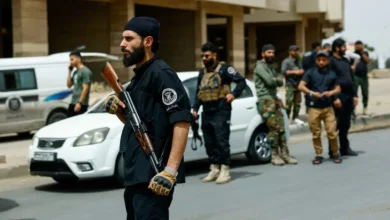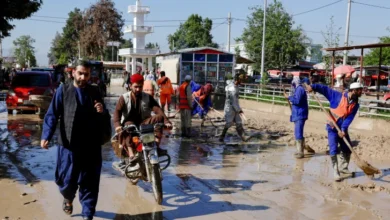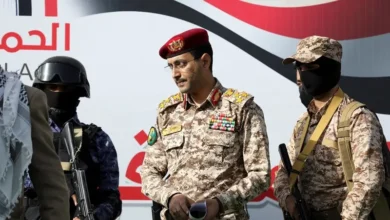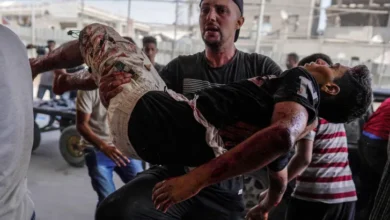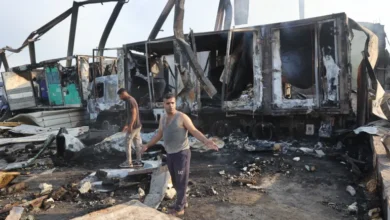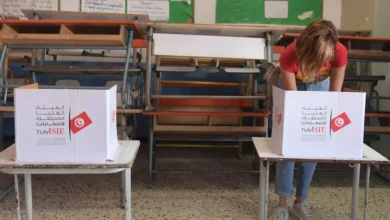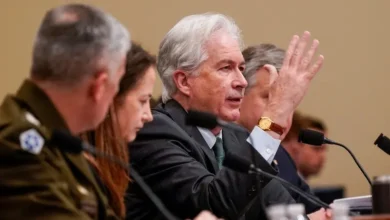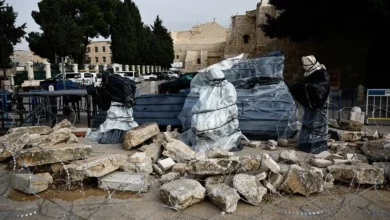Israeli strikes kill dozens in Gaza as criticism of Israel grows
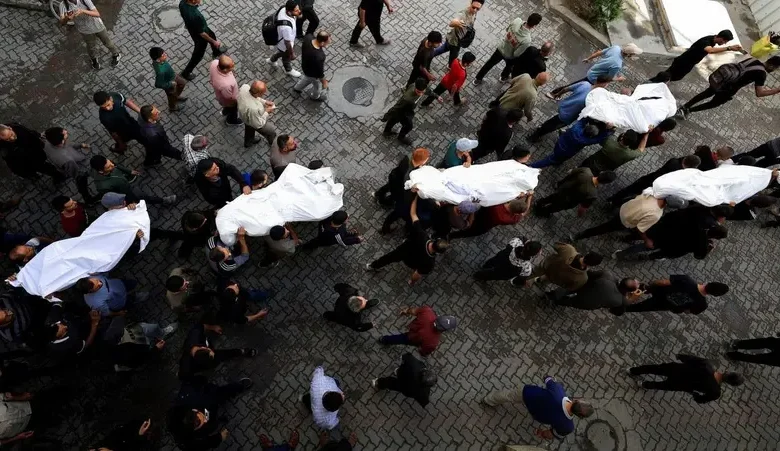
Israeli airstrikes killed at least 50 Palestinians in Gaza on Tuesday, local medics said, as Israel continues its bombardment despite mounting international pressure to stop military operations and allow aid into Gaza unimpeded.
The strikes fell across Gaza, and medics in the territory said that among the sites hit were two homes where women and children were among the 18 dead, and a school housing displaced families.
Israel’s military, which on Monday warned those in the southern Gazan city of Khan Younis to evacuate to the coast as it prepared for an “unprecedented attack,” had no immediate comment.
In Gaza City, Reuters footage showed men, women and children sifting through the rubble of the Daraj neighborhood school where they had been sheltering, and where charred pieces of clothing and a red teddy bear lay among scattered belongings.
At the nearby Al-Ahli Hospital, men performed prayers over bodies wrapped in white shrouds before carrying them to their graves.
“What is our fault? What is the fault of children? What is the fault of the women we found on the stairs with their hair and clothes torn and burned?” said Omar Ahel, who had been sheltering at the school. “By God, this is injustice.”
Israeli strikes have killed more than 500 people in the past eight days as the military campaign has intensified, medics in Gaza say.
Israel’s ground and air war has devastated coastal territory, displacing nearly all its 2.3 million residents and killing more than 53,000, according to Gaza health authorities.
The campaign began after Hamas-led militants attacked Israeli communities near Gaza’s border in October 2023, killing about 1,200 people and seizing 251 hostages, according to Israeli tallies.
‘Everything’s empty’
The war has strained Israel’s relations with much of the international community and those with its closest ally, the United States, now appear to be wavering.
After Israel imposed a blockade of food and other supplies beginning March 2, Gaza has also been facing a critical risk of famine, a UN-backed hunger monitor said earlier this month.
On Monday, Israel allowed nine trucks into Gaza, and on Tuesday the United Nations said it had received permission from Israel for about 100 aid trucks to enter.
The UN has long said Gaza needs at least 500 trucks of aid and commercial goods every day. Throughout the war, trucks with aid have waited weeks and months at Gaza’s border to enter.
Louise Wateridge, a spokesperson for the UN Palestinian refugee agency UNRWA, said on Tuesday there was little food left.
“Everything’s empty. The warehouses, the distribution centers, they’ve been empty for weeks,” she said, speaking from a warehouse in Jordan that she said had food for 200,000 people, which could be driven to Gaza in just a few hours.
The leaders of Britain, France and Canada warned on Monday they could take “concrete actions” against Israel if it did not stop military operations in Gaza and lift restrictions on aid.
On Tuesday, British Prime Minister Keir Starmer said he, along with the leaders of France and Canada, were horrified by the military escalation in Gaza, repeating calls for a ceasefire.
“I want to put on record today that we’re horrified by the escalation from Israel,” Starmer told parliament, after releasing a joint statement with French President Emmanuel Macron and Canadian Prime Minister Mark Carney.
“We repeat our demand for a ceasefire as the only way to free the hostages, we repeat our opposition to settlements in the West Bank, and we repeat our demand to massively scale up humanitarian assistance into Gaza.”
Starmer said foreign minister David Lammy would set out Britain’s “response in detail” later on Tuesday.
“We must coordinate our response, because this war has gone on for far too long.”
French Foreign Minister Jean-Noel Barrot told French radio on Tuesday that there was a growing call from some countries, including France, to review a long-standing association agreement with Israel. Aid must be “immediate, massive and without any hindrance,” he said.
Relations soured
Relations between Israel and France have soured, with Paris suggesting it could recognize a Palestinian state. Israeli Prime Minister Benjamin Netanyahu vehemently opposes Palestinian statehood.
Netanyahu said his country was engaged in a “war of civilization over barbarism” and vowed it would “continue to defend itself by just means until total victory.”
He has said Israel aims to control the whole of Gaza.
Yair Golan, former deputy chief of staff of Israel’s military and current leader of the opposition center-left Democrats party, told local Kan Radio that Israel risked becoming a pariah state.
“A sane country does not engage in combat against civilians, does not kill babies as a hobby, and does not pursue goals of population expulsion,” he said.
His comments drew a sharp backlash from the prime minister, who accused Golan of “echoing the most contemptible antisemitic blood libels” against Israel and the military.
The military issued its own statement saying that Chief of Staff Eyal Zamir condemns any statement casting doubt on the values of the military and the morality of its soldiers.
Israel’s leadership has insisted that it can free the hostages and dismantle Hamas through force.
Hamas has said it would release the hostages in exchange for an end to the war and the release of Palestinians in Israeli jails.
